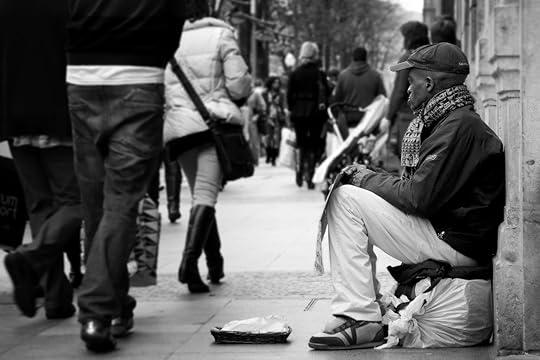Our Responsibility for the Poor

Today, I want to bring to your attention several relatedpassages that are clearly directed to individuals or households, not tothe whole church.
“There will always be poor people in the land. Therefore Icommand you to be openhanded toward your brothers and toward the poor and needyin your land” (Deuteronomy 15:11).
“But when you give a banquet, invite the poor, the crippled,the lame, the blind, and you will be blessed. Although they cannot repay you,you will be repaid at the resurrection of the righteous” (Luke 14:13-14).
“Religion that God our Father accepts as pure and faultlessis this: to look after orphans and widows in their distress and to keep oneselffrom being polluted by the world” (James 1:27).
“Suppose a brother or sister is without clothes and dailyfood. If one of you says to him, ‘Go, I wish you well; keep warm and well fed,’but does nothing about his physical needs, what good is it?” (James 2:15-16).
We have managed to evade these clear teachings by delegatingthe responsibility to the state, the deacons’ fund at our church, or tocharitable organizations. Even if we give to these organizations, it is not thesame as inviting the poor home to dinner. Or we get involved at Thanksgiving orChristmas and feel good about it, apparently not realizing that these peoplewould like to eat daily. Our response is that there are too many poor people.Yes, but that is not an excuse for not taking care of one of the many. When thestate takes care of the poor, the money may be there but the love is not.
How To Be Free From Bitterness and other essays on Christian relationships


